Calendar
Greatmartyr, Victory-bearer and Wonderworker George
6. May 2015 - 13:16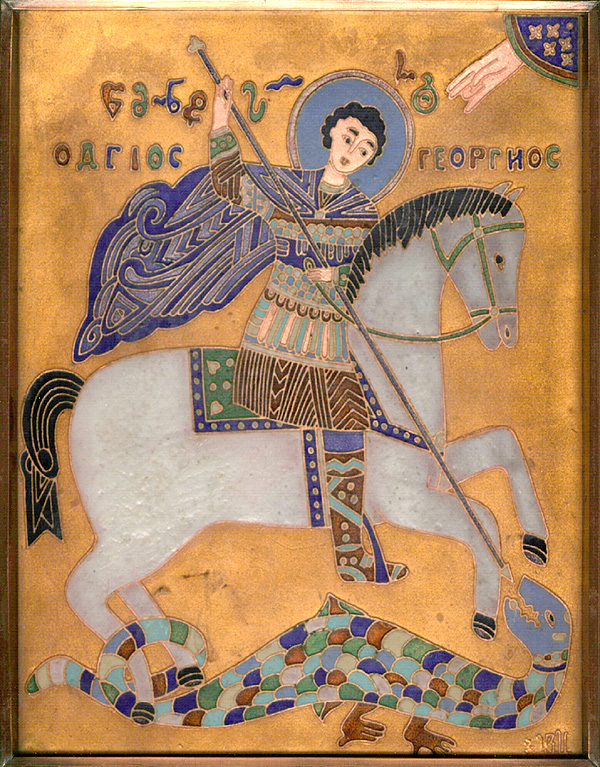 The Holy Great Martyr George the Victory-Bearer, was a native of Cappadocia (a district in Asia Minor), and he grew up in a deeply believing Christian family. His father was martyred for Christ when George was still a child. His mother, owning lands in Palestine, moved there with her son and raised him in strict piety.
The Holy Great Martyr George the Victory-Bearer, was a native of Cappadocia (a district in Asia Minor), and he grew up in a deeply believing Christian family. His father was martyred for Christ when George was still a child. His mother, owning lands in Palestine, moved there with her son and raised him in strict piety.
When he became a man, St George entered into the service of the Roman army. He was handsome, brave and valiant in battle, and he came to the notice of the emperor Diocletian (284-305) and joined the imperial guard with the rank of comites, or military commander.
Synaxarion for Thomas Sunday
19. April 2015 - 15:11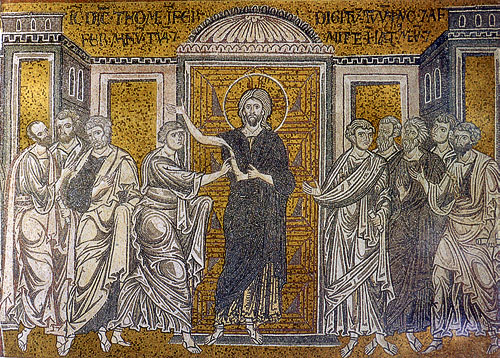 On this Sunday, the second Sunday of Pascha, we celebrate the Antipascha, that is to say the re-dedication of the Resurrection of Christ, and also commemorate the event of the Holy Apostle Thomas' touching the wounds of Christ.
On this Sunday, the second Sunday of Pascha, we celebrate the Antipascha, that is to say the re-dedication of the Resurrection of Christ, and also commemorate the event of the Holy Apostle Thomas' touching the wounds of Christ.
This commemoration is due to the ancient custom of rededicating important events. As a year would pass and the date of such an event would arrive, a commemoration was made so that such great events would not be forgotten. This is why the Israelites celebrated the Passover at Gilgal, to commemorate the passing through the Red Sea. They also commemorated the consecration of the Tabernacle of Witness that was in the wilderness and many other holy events.
Synaxarion: Great and Holy Saturday
11. April 2015 - 10:17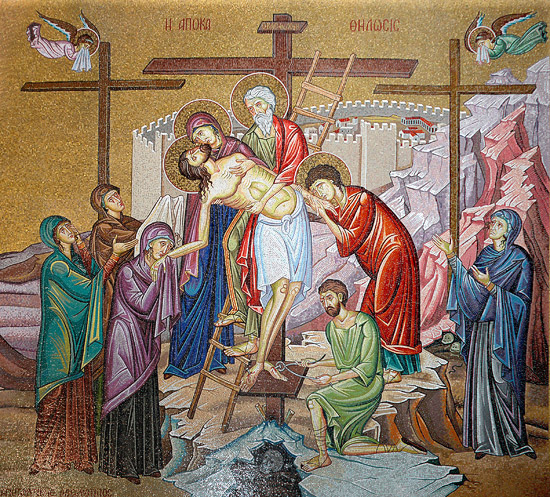 Of all the days the Holy and Great Forty Day Fast is the most distinguished, but more than the Holy Forty Day Fast the Holy and Great Passion Week is exalted, and more than the days of Holy Week Great and Holy Saturday is the most exalted. This week is called great not because these days or hours are more exalted but because the great, portentous and extraordinary deeds of our Savior were accomplished during this week, but especially on this day.
Of all the days the Holy and Great Forty Day Fast is the most distinguished, but more than the Holy Forty Day Fast the Holy and Great Passion Week is exalted, and more than the days of Holy Week Great and Holy Saturday is the most exalted. This week is called great not because these days or hours are more exalted but because the great, portentous and extraordinary deeds of our Savior were accomplished during this week, but especially on this day.
Great and Holy Friday
10. April 2015 - 9:38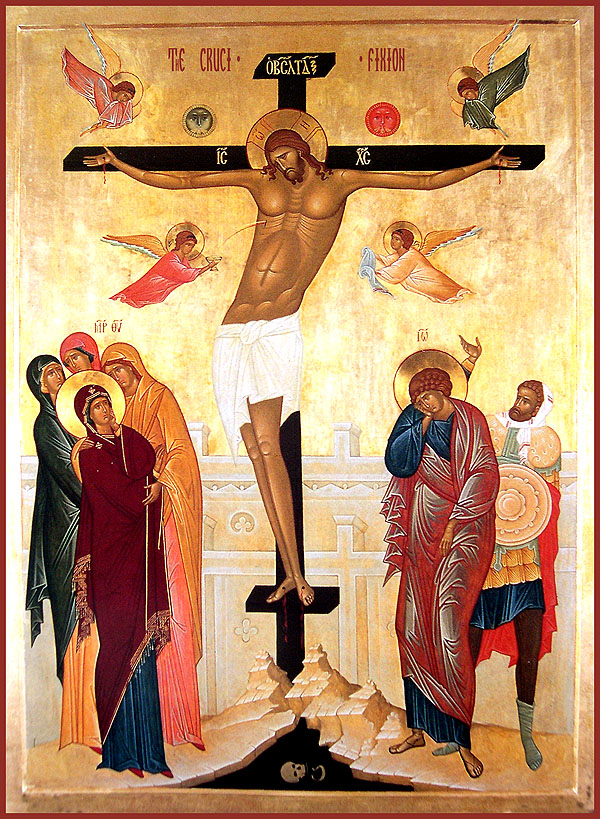 On Great and Holy Friday, Christ died on the Cross. He gave up His spirit with the words: “It is finished” (John 19:30). These words are better understood when rendered: “It is consummated.” He had accomplished the work for which His heavenly Father had sent Him into the world. He became a man in the fullest sense of the word. He accepted the baptism of repentance from John in the Jordan River. He assumed the whole human condition, experiencing all its alienation, agony, and suffering, concluding with the lowly death on the Cross. He perfectly fulfilled the prophecy of Isaiah:
On Great and Holy Friday, Christ died on the Cross. He gave up His spirit with the words: “It is finished” (John 19:30). These words are better understood when rendered: “It is consummated.” He had accomplished the work for which His heavenly Father had sent Him into the world. He became a man in the fullest sense of the word. He accepted the baptism of repentance from John in the Jordan River. He assumed the whole human condition, experiencing all its alienation, agony, and suffering, concluding with the lowly death on the Cross. He perfectly fulfilled the prophecy of Isaiah:
“Therefore I will divide him a portion with the great, and he shall divide the spoil with the strong; because he has poured out his soul to death, and was numbered with the transgressors; yet he bore the sins of many, and made intercession for the transgressors.”
Holy and Great Thursday
9. April 2015 - 9:10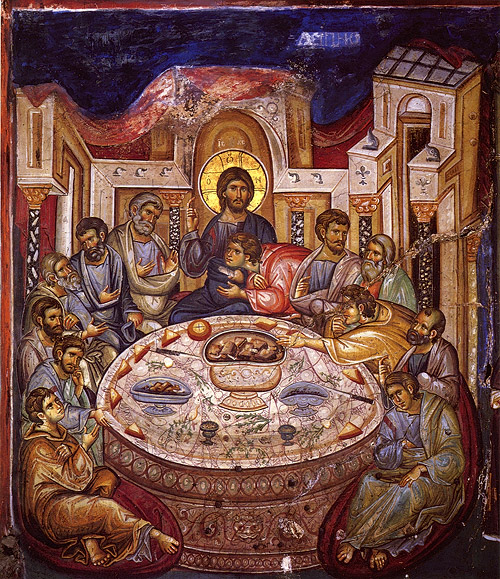 Commemoration of the Mystical (Last) Supper
Commemoration of the Mystical (Last) Supper
And as they were eating, Jesus took bread, and blessed it, and brake it, and gave it to the disciples, and said, Take, eat; this is my body. And he took the cup, and gave thanks, and gave it to them, saying, Drink ye all of it; For this is my blood of the new testament, which is shed for many for the remission of sins.
Mt. 26:26–28
On the day of the feast of unleavened bread, when according to the Law of the Old Testament a lamb was to be slaughtered and eaten, the hour was come that the Savior should depart out of this world unto the Father (cf. Jn. 13:1). Having come to fulfill the law, Jesus Christ sent His disciples, Peter and John, to Jerusalem to prepare the Passover, which, as the shadow of the law, He wanted to exchange it with the New Pascha—His own Body and Blood. When evening had come, the Lord came with His twelve disciples to a large, prepared upper room of a man who lived in Jerusalem (cf. Mk. 14:12–17) and reclined there. Telling them that the Kingdom of God, which is not of this world, and not earthly greatness and glory, but love, humility, and purity of spirit is what distinguishes its members, the Lord rose from the table and washed the feet of His disciples. Having washed the feet and again reclined, the Lord said to His disciples: Do you know what I have done for you? You call Me Teacher and Lord, and you say correctly, for I am exactly that. Thus, if I, your Lord and Teacher, have washed your feet, then you should wash each others’ feet. For I have given you an example, so that you would do the same thing I have done for you.
Annunciation and Choosing Life
6. April 2015 - 21:57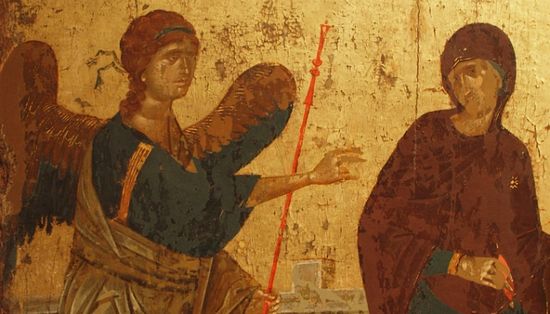 Recent statistics indicate that about half of all pregnancies in America are “unintended,” and of those, four out of ten end in abortion. Perhaps most disturbingly, over 70% of women involved in an abortion report some sort of religious affiliation.
Recent statistics indicate that about half of all pregnancies in America are “unintended,” and of those, four out of ten end in abortion. Perhaps most disturbingly, over 70% of women involved in an abortion report some sort of religious affiliation.
In the Orthodox Church, we commemorate the Great Feast of Annunciation on March 25. Without coincidence, this occurs nine months before the Great Feast of Nativity or Christmas. In the Annunciation, we celebrate not only the Incarnation, but the actualconception of Jesus Christ. As the Creed states, “who was conceived by the Holy Spirit and the Virgin Mary and became man.” We also remember the conception of Mary herself later in the year. And again, not merely their birth or the bare facts of their existence, but theirconception—what the Church has forever, and ever shall recognize as the beginning of life. This is without question, and has been universally attested since the apostles.

